Cataract Surgery in Zaheerabad
Home/Services/Cataract Surgery
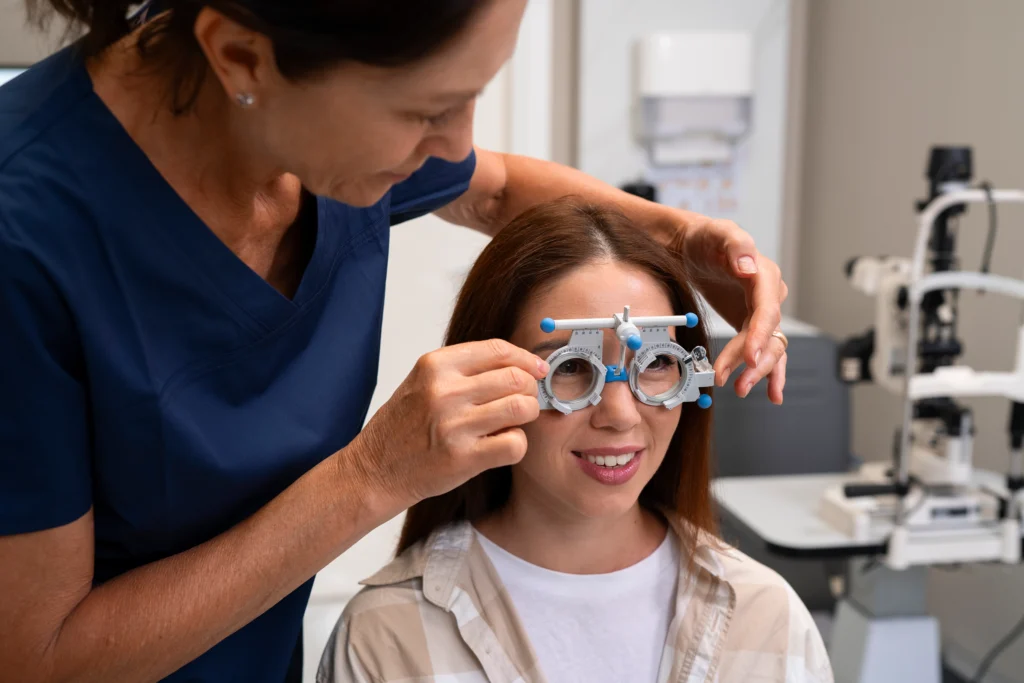
What is Vision Correction Surgery?
Understanding About Cataract
Refractive surgery goes beyond eliminating the need for glasses or contacts; it’s about regaining your vision and independence. After thorough assessments, including advanced corneal topography, our specialists design a customized plan specifically for your eyes.
It’s more than just a procedure; it’s your gateway to clearer, sharper vision and a new sense of freedom.
Symptoms of Retinal Leaser Include
Symptoms of a retinal tear or detachment may include:
- Sudden Onset of Floaters: Small, dark shapes that float in your field of vision.
- Flashes of Light: Seeing brief flashes of light, especially in the peripheral vision.
- Blurred Vision: Sudden, unexplained blurriness in one eye.
- Gradual Reduction in Peripheral Vision: A shadow or curtain over a part of your visual field.
- A Dark Shadow: A dark area or shadow in your vision.
When to consider cataract surgery
Consult your eye doctor to see if surgery is the best course of action for you. When your cataracts start to hinder your quality of life, the majority of eye physicians advise you to think about having cataract surgery. Your capacity to carry out regular tasks, including reading or driving at night, may fall under this category.
Cataracts often do not cause visual impairments, thus most people do not feel a pressing need to have them removed. However, some people’s cataracts can worsen more quickly than others. These consist of obesity, high blood pressure, and diabetes.
When to consider cataract surgery
Discuss if surgery is the best course of action for you with your eye doctor. When your quality of life starts to suffer due to cataracts, the majority of eye physicians advise you to think about having cataract surgery. This could involve your capacity to carry out regular tasks like reading or nighttime driving.
Because cataracts often don’t damage the eyes, most people don’t feel the need to have them removed right away. However, some people may see a rapid worsening of cataracts. Diabetes, hypertension, and obesity are a few of these.
Different Types of Cataracts
Cortical Cataract
One type of cataract that starts at the periphery of the lens and progresses toward the center is called a cortical cataract. The term “cortical cataracts” refers to a type of cataract that develops in the cortex, or outside margins of the lens.
Intumescent Cataract
The term “intumescent cataract” refers to an advanced stage of cataract that develops when the lens swells due to the action of degraded lens protein. This condition might cause acute glaucoma and perhaps impair vision.
Nuclear Cataract
The center of the lens has an excessive amount of light scattering and yellowing. The nucleus, or the center of the eye, starts to become hazy, yellow, and hardens as it develops nuclear sclerosis.
Rosette Cataract
One kind of traumatic cataract is rosette cataract. A traumatic cataract is a clouding of the lens caused by either deep ocular trauma that breaks the lens fibers or blunt trauma to the head or eye region
Traumatic Cataract
Traumatic cataracts are cloudsing of the lens and eyes that can happen as a result of ocular trauma that is either blunt or penetrates the eye, damaging and disrupting the lens fibers.
Subcapsular Cataract
One type of cataract in which the posterior, or back, part of the crystalline lens becomes opaque is called a posterior subcapsular cataract.
FAQs
How long does cataract surgery last?
It usually takes 15 to 30 minutes for a cataract operation, depending on how severe the problem is. It’s a daily care protocol. Usually, it takes two to three hours to complete the process from entering the hospital to leaving.
Can I live a normal life after cataract surgery?
When cataract surgery goes well, most patients are able to resume their regular activities. However, in order to guarantee a speedy recovery and vision restoration, several safety measures must be taken during the healing process.
Is cataract surgery painful?
The majority of patients feel little to no discomfort during or following cataract surgery. During the operation, ocular drops are utilized to numb the affected eye. Post-surgical discomfort may typically be controlled with over-the-counter pain medication.
Our Services
Book An Appointment
Why Choose Eyecare Optical and Clinic ?
- Experienced Doctors
- Cutting-edge Technology
- 1000+ Trusted Patients
- 10+ Years Services
- 10,000+ Surgeries
- 100% Accurate Results
- Quick Recovery
- Your Vision Is Our Focus
- Treatments
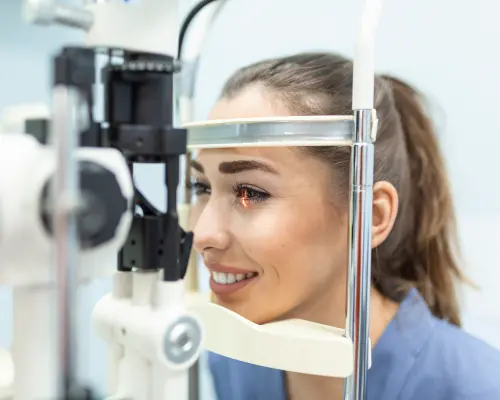
Customised LASIK
Personalized LASIK is a type of vision correction surgery that is more accurate and specific than normal LASIK since it is customized to the specific flaws in each patient's eye.
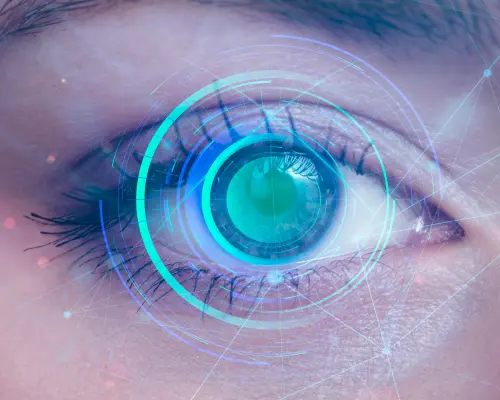
Retina Services
Retinal services include specialist medical care for the diagnosis, treatment, and management of disorders and diseases that impact the retina.
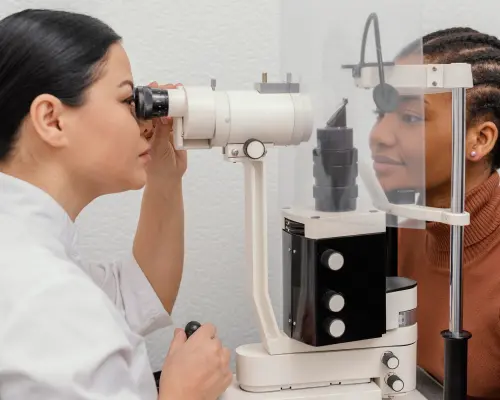
Corneal Services
The clear front surface of the eye, the cornea, is affected by a variety of diseases and ailments, which Corneal Services specializes in identifying, treating, and managing.
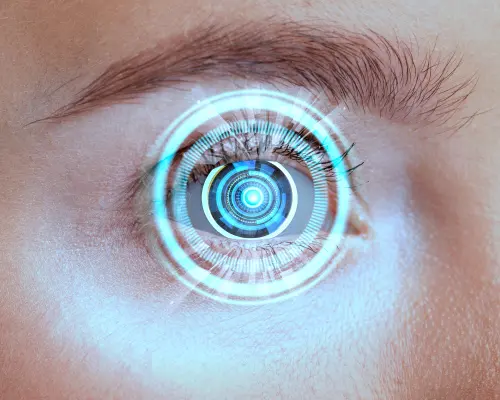
Anti-VEGF Agents
Anti-VEGF therapies are drugs that prevent aberrant blood vessel formation and leakage by blocking vascular endothelial growth factor (VEGF).
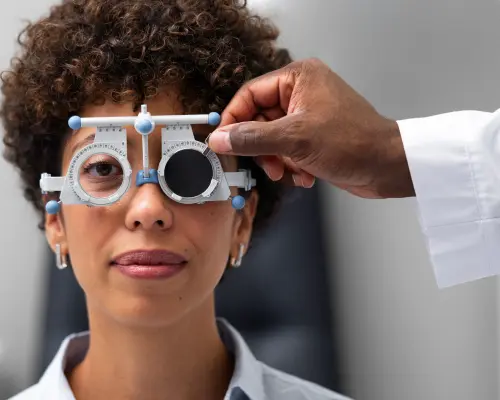
Epi-LASIK
A form of refractive surgery called epi-LASIK uses a laser to separate and reshape the corneal epithelium in order to treat visual issues like astigmatism, hyperopia, & myopia.
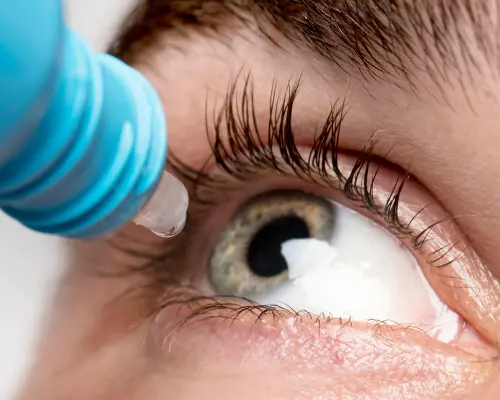
Dry Eye Treatment
To control symptoms and enhance tear production, dry eye treatment options include prescription drugs like cyclosporine, artificial tears, and lifestyle modifications.
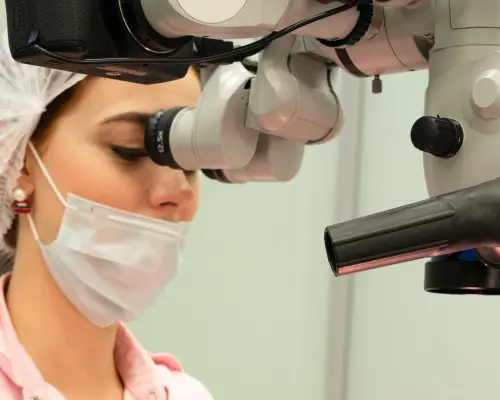
Contoura Vision
Contoura visual is a highly precise LASIK eye surgery treatment that corrects visual abnormalities using topography-guided technology.
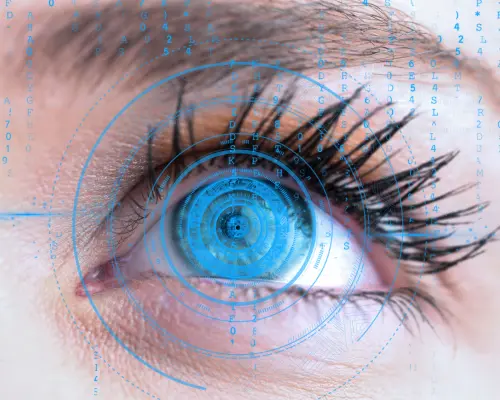
ICL
The term "ICL" refers to Implantable Collamer Lenses, a kind of corrective lens that is placed inside the eye to cure astigmatism, hyperopia, and myopia.
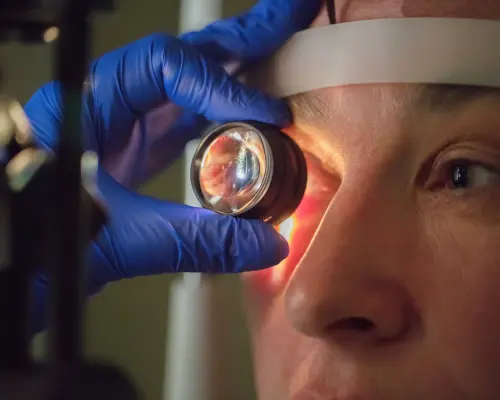
Cataract Surgery
The process of having a cataract surgically removed and a clean artificial lens placed in its place restores eyesight.